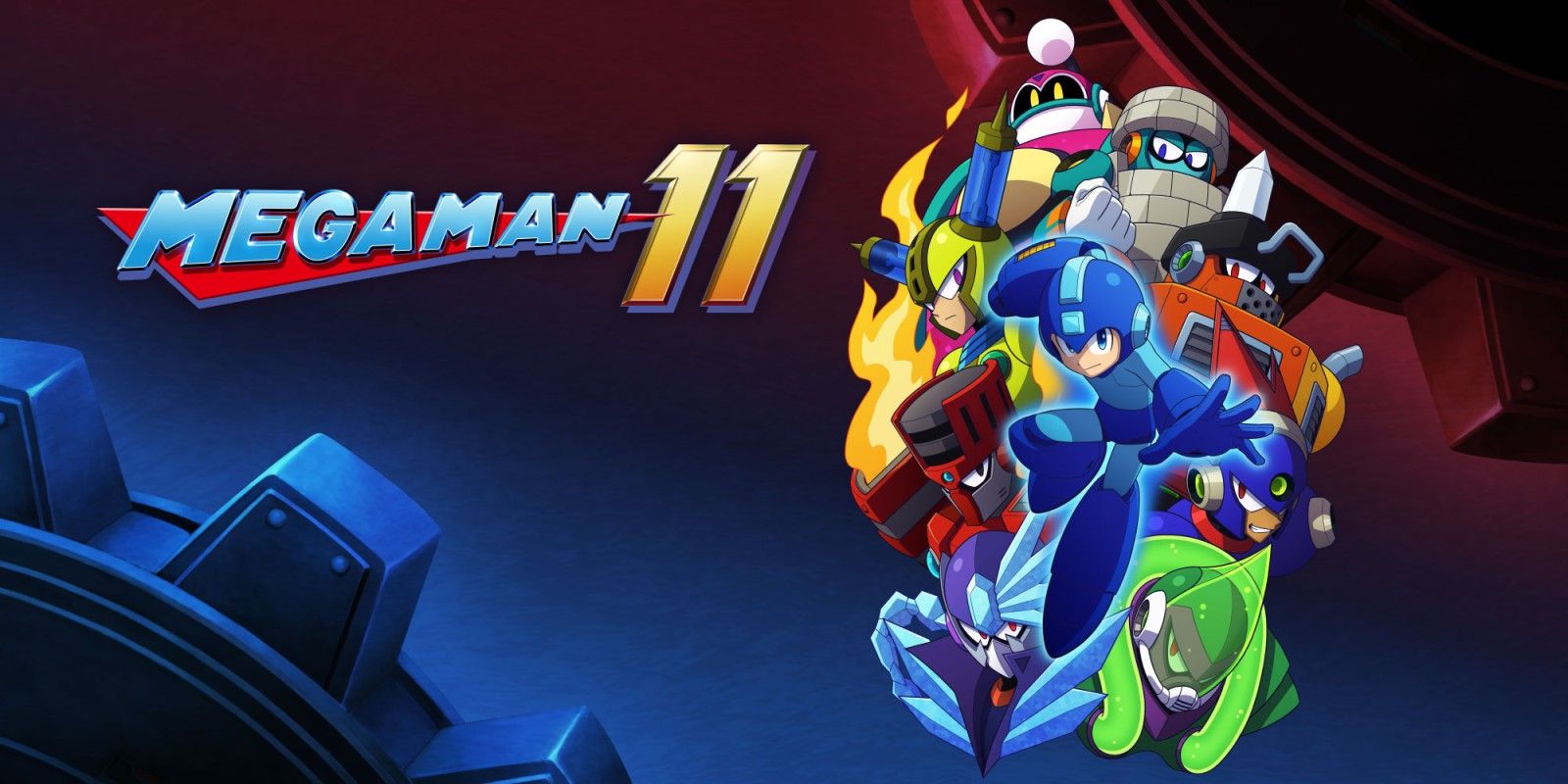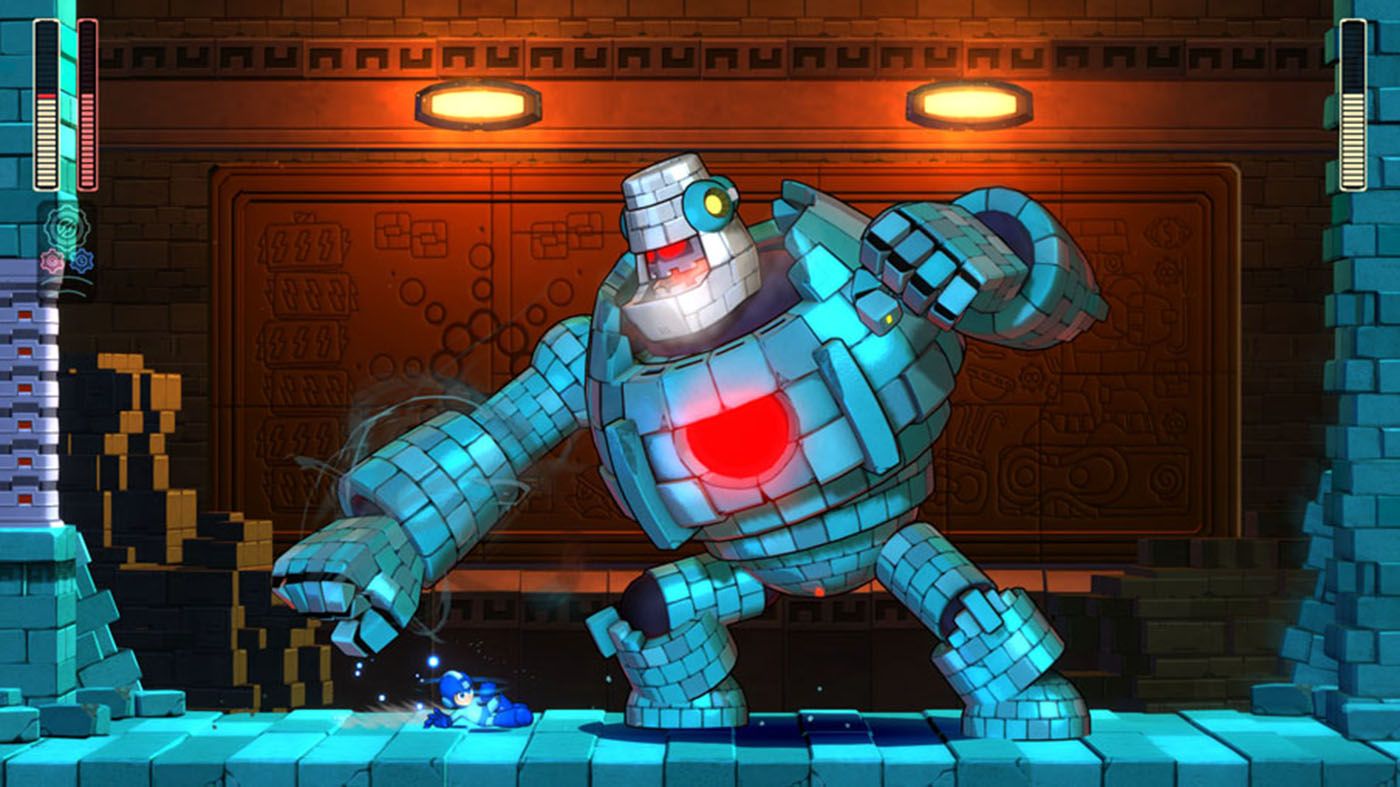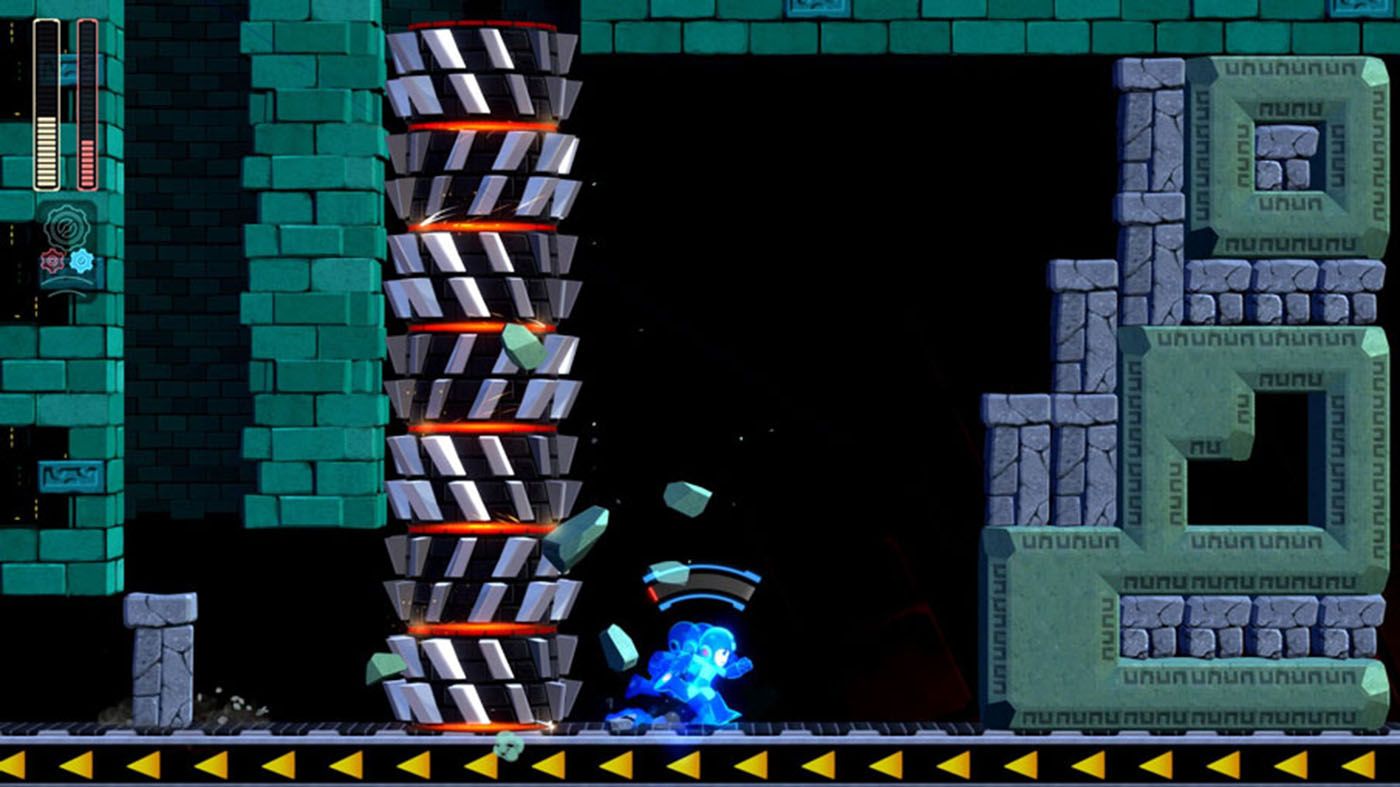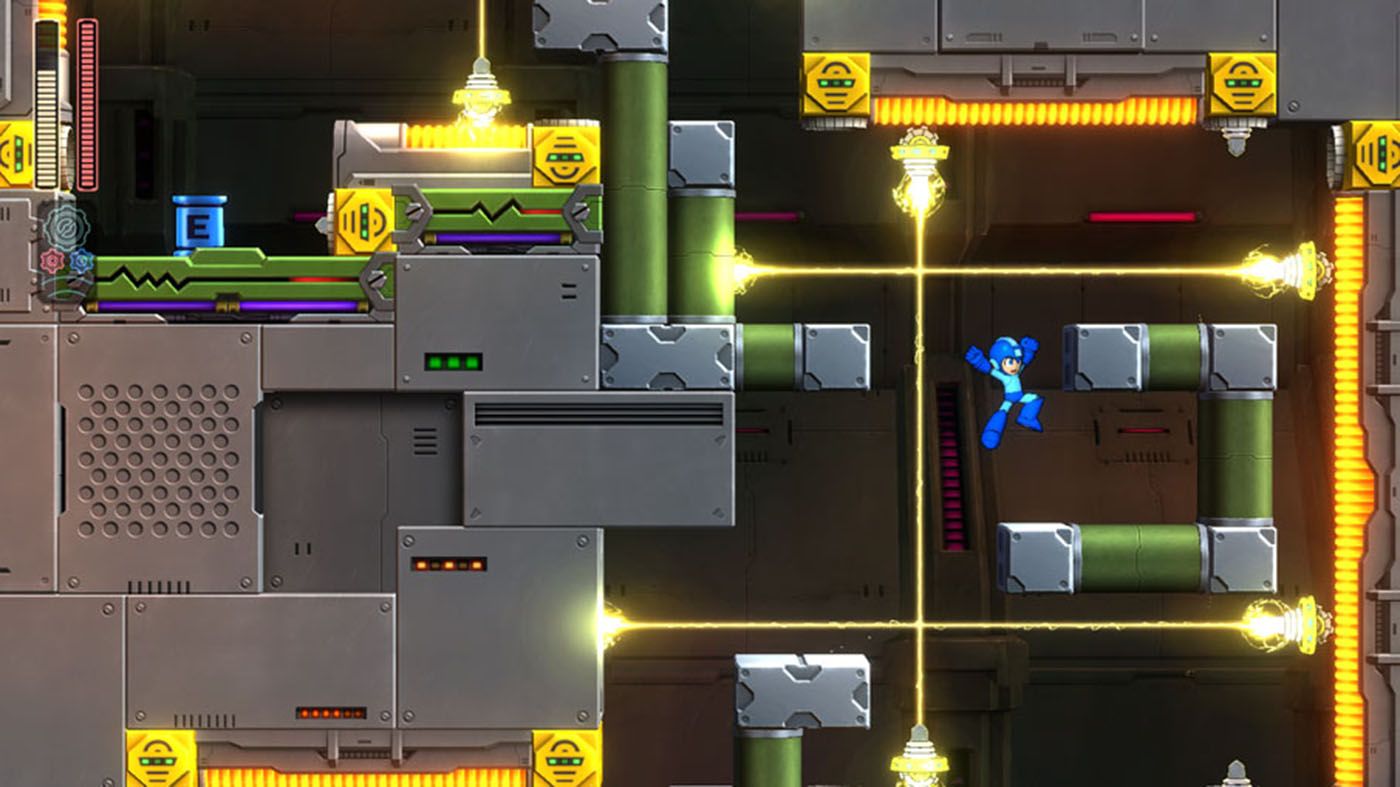
Mega Man is one of the biggest names in video games, but the series hasn't always had the best of times. At its peak it was one of the standout examples of the 2D platformer, with a number of near-perfect releases, but the franchise struggled as 3D gaming took root, with publisher Capcom effectively putting the series on the backburner as a key property and instead focusing on spin-offs. With Mega Man 11 however, there's certainly an attempt to bring the series back to public consciousness.
The title follows on from 2008's Mega Man 9 and 2010's Mega Man 10, which had a much greater retro vibe and effectively looked like they had been pulled from the franchise's NES-era heyday. For Mega Man 11 there's more of an attempt to move away from a retro aesthetic, with a style that aligns it with the other modern 2D platformers that have succeeded in the market. Although some may not appreciate it in comparison to the classic look of previous games, it nonetheless matches the tone of its predecessors well.
Related: Mega Man 11 Double Gear System Explained
It's not just the graphics that have been given something of a shake-up. Mega Man 11 also introduces a fun new gameplay mechanic called the Double Gear System, which effectively gives the player two further enhancements alongside Mega Man's Mega Buster, Rush, and 'inherited' weapons from beaten Robot Masters. One gear bumps up the Blue Bomber's firepower significantly, while the other allows him to slow down time, both on a time limit.

Aside from that, though, things do feel quite familiar. Mega Man 11 follows the same structure of the classic Mega Man games of old, with a selection of Robot Masters and their own themed stages to fight before going on to challenge Dr. Wily once more. As always, the Robot Masters have their own weaknesses to exploit, using that tried-and-tested method of using another robot's weapon against them.
In general, the Robot Masters this time around are suitably well-designed (unlike that Funko Pop Mega Man cereal). Some staples of the series return, with Torch Man filling the slot of the fire-based Robot Master as just one example of the way Mega Man 11 tries to emulate the past, perhaps to a fault. A shake-up to the format is how the bosses utilize the Double Gear System themselves, through a mid-fight change that players have to respond to quickly.
That said, there are still stages that are clearly superior to others. Some particularly stand out for their quality, such as the extremely enjoyable Acid Man stage that feels similar to Plague Knight's Explodatorium in Shovel Knight. Equally, Blast Man's level is a volatile theme park full of exploding platforms and is a joy to play through.

However, there are weak spots. The stage for Bounce Man feels frustrating overall with awkward bouncing sections spotted throughout, while the world of Tundra Man mainly challenging due to the worn out trope of a slippery terrain. As usual, the Dr. Wily stages at the end do feel satisfying to play, as does the mandatory Mega Man boss rush.
Beyond that, there are a few additional extras that players can look to for fun. Alongside the core game, there are a selection of extra game modes including a variety of Time Attack modes. It fills the void nicely to stop the title from feeling a little bit too barren, although the central focus is still on the story mode itself.
Something else worth noting is that Mega Man 11 offers a flexibility of difficulty that those new to the series may appreciate. The franchise is renowned for its challenge, but this time around those who feel intimidated have difficulty options to choose from. The lower difficulty levels likely won't be used by those familiar with how the series operates, but it's a neat option to those new as a whole.

Mega Man 11 is a fun platforming experience while it lasts, but not one that's breathtaking in its design. Long-term fans of the series will look at the game as a high-end throwback, as it maintains what was solid about the original games with a couple of tweaks to keep things fresh. It's certainly a better choice for Mega Man aficionados than the unfulfilled promises of Mighty No. 9, and given the lack of love for the series of late that's not something to be sniffed at.
That said, it's perhaps not the top tier Mega Man game that fans might have hoped for. In the last few years there have been plenty of high quality indie titles to fill the 2D platforming space, such as the aforementioned Shovel Knight or more recent releases like Freedom Planet and The Messenger, and Mega Man 11 doesn't quite reach that same level. Even so, it's still a fun romp that hits all the right nostalgia buttons.
More: 12 Things You Need to Know About Mega Man
Mega Man 11 releases October 2, 2018, for PC, PS4, Xbox One, and Nintendo Switch. Screen Rant was provided with a PS4 code for the purposes of this review.
from ScreenRant - Feed https://ift.tt/2DMZp1N


0 Comments